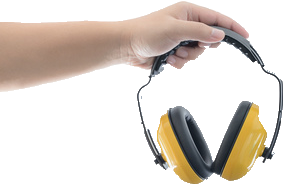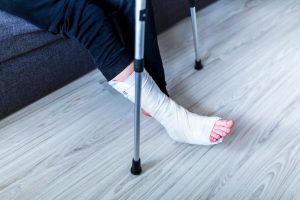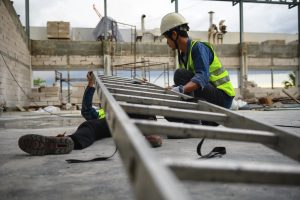Exposure to high levels of noise in the workplace is one of the more common causes of hearing loss in the UK.
Noise induced hearing loss may be grouped under two different categories. The first is sudden loss of hearing resulting from a loud noise at close range. Common examples could include a gunshot or a bomb going off just next to you.
The second category is loss of hearing due to repeated exposure to loud noises over an extended period of time. Unfortunately, because there are no visible or noticeable signs in the early stages, these noise injuries often go unnoticed until the damage is severe and irreversible. In the beginning stages, most workers tend to think their hearing difficulty is just a temporary phase. They do not suspect that they may be experiencing noise injuries brought on by prolonged exposure to loud noises in the workplace.
Warning Signs Of Hearing Loss
Some of the symptoms that indicate that you may be experiencing complete or partial hearing loss include:
- You have difficulty hearing someone who is talking to you barely 3 feet away from you.
- Immediately after the noise exposure, you start to hear a buzzing, whistling or ringing sound in your ears. This could be the onset of tinnitus. This may resolve itself after a while or it may become permanent.
- You get the sensation of fullness in your ears when the noise stops or you leave the noisy area.
- You have difficulty hearing certain sounds, particularly the sound of these alphabets – d, s and t.
- Immediately after the noise exposure, you may be able to hear the sounds when someone is speaking to you, but you find it difficult to understand what they are saying.
- You think you are speaking softly or that you’ve got the television on low, but everyone around you tells you to speak a bit softer or turn the television down because it is too loud.
Which Occupations Are Considered High Risk For Noise Injuries?
Common high risk occupations include:
- Factory workers.
- Heavy industry workers.
- Construction workers.
- Firefighters.
- Military personnel.
- Police officers.
- Miners.
- Musicians.
- Farmers.
- Automobile mechanics.
Armed police officers and military personnel are at high risk of noise induced deafness from firing their weapons at close proximity to their ears. Workers in most other industries usually suffer from hearing loss because of exposure to high noise levels from drills, pneumatic impact tools, chainsaws, hammers and other heavy machinery.
What Is The Employer’s Responsibility Regarding Noise Injuries?
According to the new Control of Noise at Work Regulations 2005, employers have a legal duty of care to put measures in place to protect their employees from the risk of noise injuries. These measures may differ from one workplace to another, depending on the industry and the type of work carried out in that particular workplace.
Employers are expected to first determine the levels of noise that the workers are exposed to and accordingly, put the appropriate noise-protection measures in place. These measures may include a combination of the following:
- Making sure that the noise does not exceed legal limits.
- Providing all workers with information and training on noise protection.
- Getting the quietest equipment that is available for doing the job.
- Putting measures in place to reduce the noise levels.
- Providing all workers with adequate hearing protection if there is no way to reduce the level of noise exposure.
- Carrying out regular checks to ensure that all workplace protocol regarding noise protection is being followed.
If the noise levels are at 80 decibels or above, employers must take special precautions to provide workers with information and protection that is adequate for those noise levels. They are also required to conduct or pay for all workers to undergo annual hearing tests in order to identify if there is any hearing loss or other noise injuries in workers’ in the early stages.
What You Can Do To Protect Yourself From Noise Injuries
While all employers are responsible for ensuring that their workers are adequately protected against noise injuries in the workplace, finally the onus is on you to protect yourself.
Here are few things you can do.
Make sure you attend all meetings related to safety in the workplaces and follow all guidelines and instructions unfailingly.
 Always wear the protective aids that you are provided with. These should be worn at all times while you are handling noisy equipment or when you are working in an environment where the noise levels are very high. Do not remove these protective aids at any time, even for a short while. All it takes is a few minutes of exposure to loud noise to damage your hearing.
Always wear the protective aids that you are provided with. These should be worn at all times while you are handling noisy equipment or when you are working in an environment where the noise levels are very high. Do not remove these protective aids at any time, even for a short while. All it takes is a few minutes of exposure to loud noise to damage your hearing.
When you can, wear disposable or replaceable ear plugs. These seal the ear canal and form a very effective barrier against loud noises.
Your Rights If You Suffer From Noise Induced Hearing Loss
If you suffer from hearing loss because of exposure to high levels in the workplace you may have a right to file a claim for compensation if:
- The employer failed to take appropriate steps to minimise noise levels in the workplace.
- The employer failed to provide you with adequate noise protection gear.
- The employer failed to educate you about the dangers of exposure to noise and how you can protect yourself.
- You have unfailingly followed all instructions and guidelines issued by your employer.
If you think you are eligible to file a compensation claim for noise injuries such as hearing loss and deafness in the workplace or specifically make a tinnitus claim, you must get in touch with a personal injury solicitor for professional advice and assistance on how to proceed. Our personal injury solicitors offer prospective clients free consultations during which they will put together all the facts and information you can provide. They will also consult with a medical professional to get their expert opinion on your hearing loss. If you have solid grounds to claim compensation, they will advise you to go ahead and file a claim.
They will also agree to take up your case on a No Win No Fee basis so you need not worry about any legal expenses and can focus instead on caring for yourself and your family while we take care of all legal procedures and formalities.



